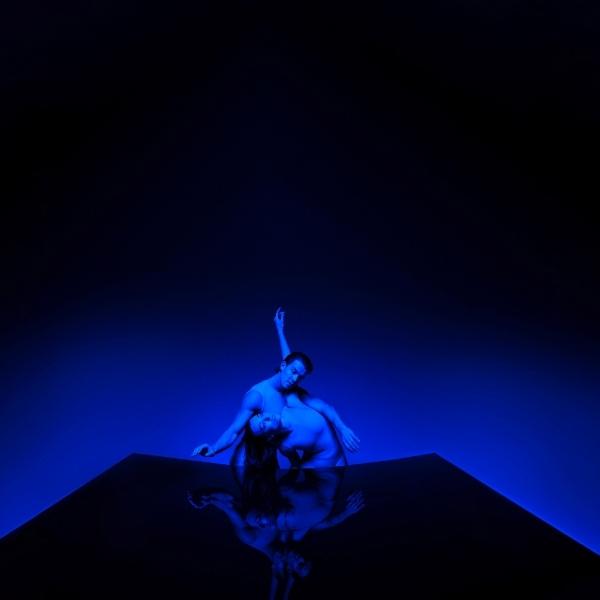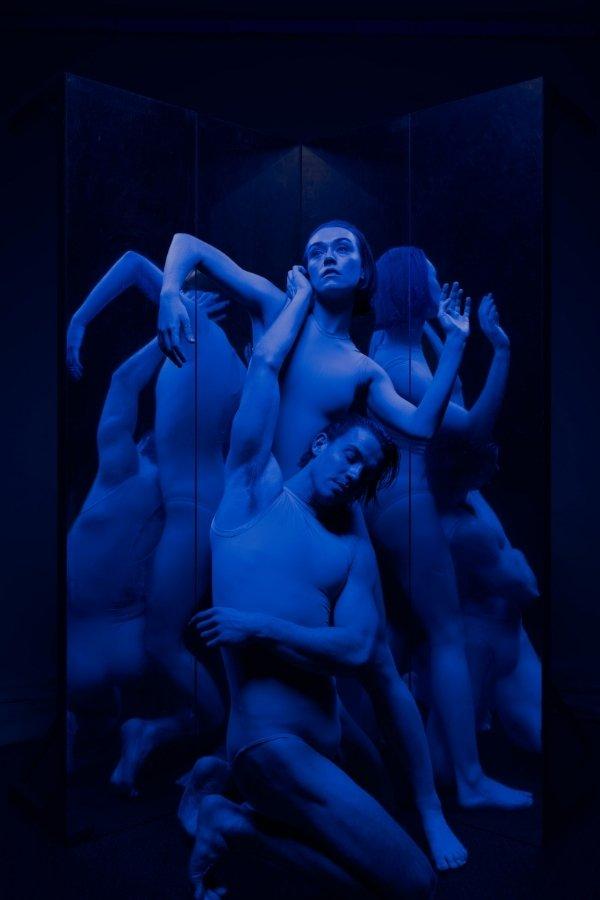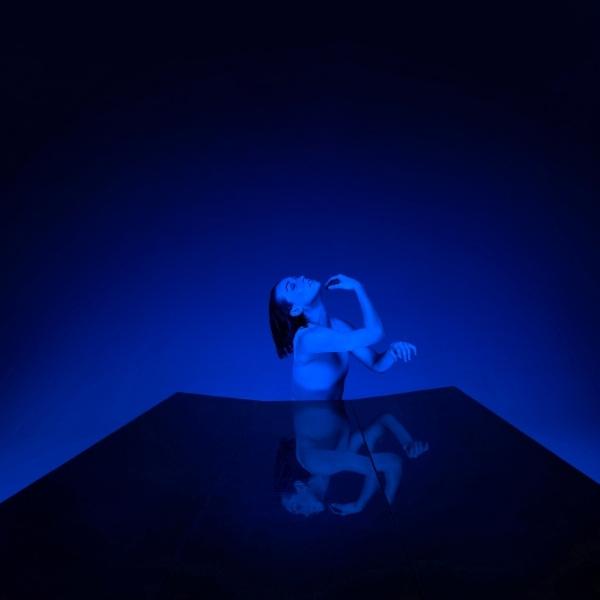In a milestone celebration, the boundary-pushing Australasian Dance Collective (ADC) will honour 40 years of creating and presenting, in 2025.
With a theme of 'something old / something new / something borrowed', the triple bill performance 'Blue' aims to honour the past, embrace the present, and look boldly to the future.
Audiences can expect to see works from Natalie Weir, Melanie Lane, and Hofesh Shechter at Queensland Performing Arts Centre.
'When Time Stops' makes a return to the stage, capturing the fragility and beauty of life's pivotal moments. Melanie Lane's new creation 'Glass Teeth' delves into and dances through dreams, amd Hofesh Shechter's seminal work 'In Your Rooms' explores society's chaotic energy and inner tensions.
Here, Australasian Dance Collective Artistic Director and CEO Amy Hollingsworth reflects on ADC's 40 years, and speaks about the upcoming 'Blue' triple bill.
It’s 40 years of ADC – that’s huge! When you look back at the company’s journey, what are some stand-out moments that have shaped what ADC is today?
It is such a joy to celebrate the company’s 40 years of extraordinary achievements. It feels like there have been so many stand-out moments, which makes it hard to single out a few, but I am struck by the continuum of commitment to new work, innovation and community-building. Over 40 years, the company has created over 190 works by more than 86 national and international choreographers and delivered 40 performance seasons at QPAC. Our founding Artistic Director Maggi Sietsma and her successor Natalie Weir were pivotal in shaping this wonderful company, each enriching the company with their vision, courage, and respect for our art form. During my tenure, moments that I feel particularly proud of have been our interdisciplinary works 'Forgery' and 'Lucie In the Sky'; the bold, immersive works 'Salamander', 'Halcyon' and most recently 'Relic'; and the exquisite triptych of films 'Still Life'. The formation of our Youth Ensemble, Pre-Professional Program and Mature Program, have also been highlights and they play an integral part in the company’s identity – this intergenerational focus makes us unique in the Australian dance landscape.

Image © David Kelly
'Blue' is described as “something old, something new, and something borrowed” – how did you land on this concept for the 40th anniversary season, and what does each piece bring to the mix?
When planning the celebration of our 40th anniversary, I wanted to curate a programme that embodies the marriage of the company’s heritage and its future. When reflecting on how to marry them, I took inspiration from the old adage of something old, something new, something borrowed, something blue as it was believed to bring good luck in the future – from there the idea of the triptych emerged. It gave a framework for a triple bill that felt poetic and could hold space for many collaborators and creatives. Something old, a reflective moment on a work from our past; something new, an opportunity to commission a new creation which is representative of the current company; something borrowed, a chance to present an incredible work that extends our dancers and will delight our audiences. For our something old, we will present an excerpt of the beautiful work 'When Time Stops' by Natalie Weir which reflects on pivotal life moments. Our something new will be an extraordinary new creation 'Glass Teeth' by one of Australia’s most exciting choreographers, Melanie Lane. Our something borrowed is 'In Your Rooms', a seminal work by global superstar Hofesh Shechter. Together, these pieces illustrate the company’s commitment to collaboration, creation and excellence. Each one brings something different to the table in terms of movement, emotion, and texture, and beautifully demonstrates the company artists’ incredible capacity and talent.
‘When Time Stops' was a major moment for ADC when it first premiered. What made it the right choice to represent the company in ‘Blue'?
'When Time Stops' is a seminal work from previous Artistic Director, Natalie Weir. It is a perfect fit for 'Blue' because it encapsulates what Natalie is so well-known for – emotional depth, storytelling, and a reflection on the human experience. The work resonated with audiences deeply, and the timeless relevance of its themes made it an ideal choice to include in our 40th anniversary celebration. Live music was also such a key element of Natalie’s tenure that I wanted to ensure I curated a work that would bring a live music element to the stage. It will be joyous to revisit this work with our friends at Camerata who performed the work with us in both 2013 and 2016.

Image © David Kelly
There’s something really powerful about dance that captures life’s pivotal moments – what do you think it is about this work that continues to resonate with audiences today?
Dance has a unique ability to express what words sometimes can’t, especially when it comes to pivotal, transformative moments in life. 'When Time Stops' continues to resonate because it holds emotions that are universal – the intense array of feelings that permeate the moments when time feels like it slows down or stops. Natalie’s choreography, paired with the live music and evocative lighting, creates a deeply moving experience that allows the audience to feel these moments rather than just observe them. There’s a rawness and vulnerability to the work that renders it timeless.
'Glass Teeth' dives into the dream world, which is such a rich and surreal space to explore through movement. How does the choreography bring these ‘uncanny nightmares and fantasies’ to life?
Melanie Lane’s 'Glass Teeth' plays into the surreal and uncanny with choreography that embodies the disorienting nature of dreams. The dancers move through the piece exploring textures that are fragmented, distorted, and sometimes nonsensical, much like the way dreams often feel – they’re not linear or logical, but instead amorphous and unpredictable. Melanie’s unique approach to movement, which blends rhythm, gorgeous physical architecture with deeply emotional expression, explore different dreamlike states in a visceral way.
The score is a collaboration with UK electronic music artist Clark. How does the music shape the piece, and what can audiences expect from that sonic experience?
Clark’s score for 'Glass Teeth' is an integral part of the piece’s emotional and sensory impact. His music, known for its electronic intensity and haunting textures, complements the surreal nature of the choreography by creating an atmosphere that is both unsettling and captivating. The score builds tension and complexity, mirroring the inner chaos of the dream world. For the audience, this will create an immersive experience – a sonic landscape that elevates the physicality on stage and pulls them deeper into the dreamlike state of the work.

Image © David Kelly
Hofesh Shechter’s work is known for its raw, almost primal energy. What drew ADC to 'In Your Rooms', and how does it connect with the themes of this triple bill?
'In Your Rooms' is a raw and powerful piece, and we were drawn to its intensity and its exploration of chaos, conflict, and human emotion. Hofesh Shechter’s work speaks to the primal, emotional core of the human experience, and 'In Your Rooms' captures a kind of tension and energy that’s both unsettling and deeply engaging. It balances and complements the other pieces in 'Blue', particularly in how it explores the darker, more complex side of life. The work’s focus on emotional turmoil and raw energy contrasts the reflective nature of 'When Time Stops' and the surreal dream state of 'Glass Teeth'.
The piece taps into the chaos and tension of society – do you think it will hit differently in 2025, given the world we’re living in now?
Absolutely. 'In Your Rooms' captures the chaos and tension of society, making it especially relevant today. With ongoing political unrest, social polarisation, and economic pressures, its raw energy and conflict will likely resonate even more in 2025. Hofesh Shechter’s work lays bare the emotions often buried beneath the surface, and in today’s climate, that raw intensity feels especially poignant.
This season isn’t just about looking back – it’s about the future, too. What excites you most about where ADC is headed next?
What excites me most about the future of ADC is our continued exploration of new creative territories and collaborative partnerships. We’re constantly evolving, and I’m particularly excited about how we’ll continue to experiment with technology, embrace interdisciplinary collaborations and redefine our boundaries with audiences. While I can’t divulge detail yet, we have an incredible project to be announced for the second half of 2025 which we cannot wait to share with audiences in Brisbane and beyond.
'Blue' plays Queensland Performing Arts Centre 14-17 May.

